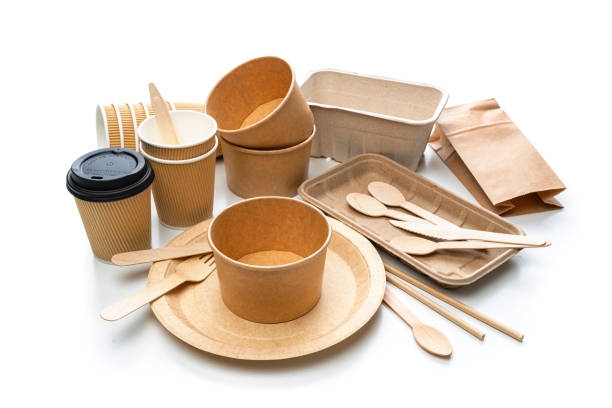In the competitive world of food production and distribution, custom food packaging plays a crucial role in ensuring product safety, extending shelf life, and enhancing brand recognition. This article delves into the myriad benefits and considerations involved in developing bespoke packaging solutions tailored to the unique needs of the food industry.
The Importance of Custom Food Packaging
Custom food packaging is essential for numerous reasons. Not only does it protect the product from contamination and damage, but it also ensures compliance with regulatory standards. By designing packaging that aligns with the specific requirements of the food being packaged, manufacturers can significantly enhance the quality and longevity of their products.
Enhancing Product Safety and Integrity
The primary function of food packaging is to safeguard the product. Custom packaging solutions are designed with the specific characteristics of the food in mind, ensuring optimal protection. For instance, vacuum-sealed packaging can help preserve the freshness of perishable items, while moisture-resistant materials can prevent spoilage of dry goods.
Regulatory Compliance
Food packaging must comply with stringent regulations to ensure consumer safety. Custom packaging solutions can be designed to meet these regulations, incorporating necessary features such as tamper-evident seals and allergen warnings. This not only ensures compliance but also builds consumer trust and confidence in the brand.
Types of Custom Food Packaging Solutions
There are various types of custom food packaging solutions available, each suited to different kinds of food products. Some of the most common types include:
Flexible Packaging
Flexible packaging, such as pouches and bags, is ideal for products that require a high degree of protection but also need to be lightweight and easy to store. This type of packaging can be tailored to fit a variety of shapes and sizes, making it a versatile option for many food products.
Rigid Packaging
Rigid packaging, such as bottles, jars, and cans, provides robust protection for fragile or liquid products. This type of packaging can be customized with different materials, shapes, and sizes to meet the specific needs of the product.
Sustainable Packaging
With increasing consumer awareness of environmental issues, sustainable packaging has become a significant consideration. Custom sustainable packaging solutions, such as biodegradable or recyclable materials, help reduce the environmental impact of food packaging and appeal to eco-conscious consumers.
Benefits of Custom Food Packaging
Investing in custom food packaging offers numerous benefits that can enhance the overall success of a product.
Brand Differentiation
Custom packaging allows brands to create a unique and recognizable image. By incorporating distinct colors, logos, and designs, businesses can stand out on crowded shelves and attract more customers. Well-designed packaging can also convey the quality and value of the product, influencing purchasing decisions.
Improved Shelf Life
Custom packaging can be designed to provide optimal conditions for preserving the food inside. This might include features like airtight seals, UV protection, or moisture barriers. By extending the shelf life of products, businesses can reduce waste and improve profitability.
Enhanced Consumer Experience
Packaging is often the first point of contact between the consumer and the product. Custom packaging that is user-friendly, easy to open, and resealable can significantly enhance the consumer experience. This not only encourages repeat purchases but also fosters brand loyalty.
Considerations for Designing Custom Food Packaging
When designing custom food packaging, several factors must be considered to ensure the packaging meets the needs of both the product and the consumer.
Material Selection
The choice of material is crucial in food packaging. It must provide adequate protection, be suitable for the type of food, and comply with regulatory standards. Common materials include plastic, glass, metal, and paper, each with its advantages and limitations.
Packaging Design
The design of the packaging should not only be visually appealing but also functional. This includes considering the shape and size of the packaging, the type of closure, and any additional features such as handles or spouts. The design should also be practical for transportation and storage.
Sustainability
Sustainability is a growing concern in the food industry. When designing custom packaging, it's important to consider the environmental impact of the materials and processes used. Opting for recyclable or biodegradable materials can reduce the ecological footprint and appeal to environmentally conscious consumers.
Innovations in Custom Food Packaging
The field of custom food packaging is constantly evolving, with new technologies and innovations emerging to meet changing consumer demands and industry standards.
Smart Packaging
Smart packaging solutions incorporate technology to enhance the functionality of the packaging. This might include features like temperature indicators, freshness sensors, or QR codes that provide additional product information. These innovations can improve product safety and provide a better consumer experience.
Edible Packaging
Edible packaging is an innovative solution that addresses both packaging waste and food safety. Made from food-grade materials, this type of packaging can be safely consumed along with the product. This not only reduces waste but also offers a unique selling point.
3D Printing
3D printing technology allows for highly customized and intricate packaging designs that were previously impossible to achieve. This technology can be used to create unique shapes, textures, and even integrated features like branding elements or product information.
Conclusion
Custom food packaging is an essential component of the food industry, offering numerous benefits from product protection and regulatory compliance to brand differentiation and enhanced consumer experience. By carefully considering the materials, design, and sustainability of packaging, businesses can develop solutions that not only meet the needs of their products but also appeal to their target market.



